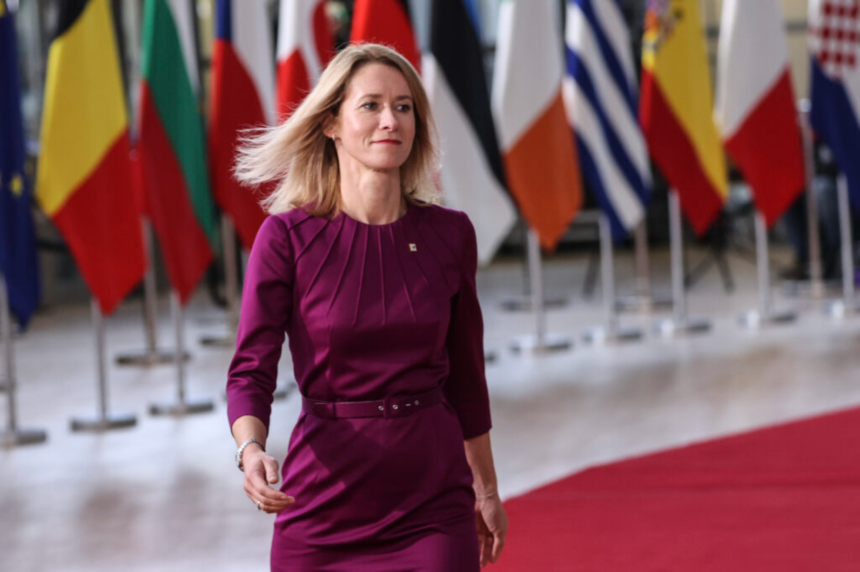European Union (EU) foreign policy chief Kaja Kallas emphasized the need for Kyiv and its partners to sustain pressure on Russia to strengthen Ukraine’s position in any potential negotiations to end the war.
Speaking on January 14, Kallas called for enhanced economic measures against Moscow and its further isolation on the global stage. She argued that these strategies are the only ways to prevent Russia from gaining the upper hand.
“We must not underestimate our capabilities or overestimate those of the Russians,” Kallas stated. “Russia is often portrayed as an undefeatable force, but this is not true. Militarily and economically, we are stronger, and we must approach this from a position of strength,” she added during an interview with Radio Free Europe and European newspapers.
Kallas pointed to significant challenges facing Russia’s economy, including interest rates exceeding 20%, workforce reductions at Gazprom by 40%, and severe strain on the labor market. She also highlighted reports of the Russian military recruiting North Korean soldiers to bolster its ranks.
“These issues indicate that they are not in a strong position,” she said, rejecting the notion that time is on Russia’s side. Instead, she urged Western allies to intensify economic pressure, pointing to Russia’s depleted monetary reserves and reduced income from oil and gas sales.
The EU is preparing its 16th sanctions package, expected to coincide with the anniversary of the war on February 24. While details remain under discussion, measures are likely to target technical and sanction-avoidance mechanisms, restrictions on aluminum imports, tariffs on agricultural products, and curbs on Russia’s so-called “dark fleet” of oil tankers.
Despite internal resistance from some pro-Russian European governments, Kallas expressed confidence in the EU’s unity in supporting Ukraine through military aid and other assistance. “The EU has maintained unity despite tough negotiations,” she noted, adding that Ukraine’s strength on the battlefield directly translates to a stronger position in peace talks.
Kallas also responded to statements from U.S. President-elect Donald Trump, who pledged to end the war quickly. She expressed hope that Trump would use U.S. influence to pressure Russian President Vladimir Putin to withdraw troops and cease attacks on civilians and infrastructure. However, she emphasized that any agreement must respect Ukraine’s sovereignty and be accepted by its leadership.
“The question remains whether Putin genuinely seeks peace,” Kallas warned, suggesting that Russia might use a ceasefire to regroup and rearm. “Russia has never respected ceasefires, which is why Europe must ensure that any peace is durable and permanent,” she added.
Kallas also addressed recent attacks on underwater cables in the Baltic Sea, linking them to broader concerns about infrastructure security in Europe. She stressed the importance of treating these incidents collectively, alongside similar actions by China against Taiwan and South Korea, to strengthen international maritime law and sanctions against Russia’s dark fleet.







